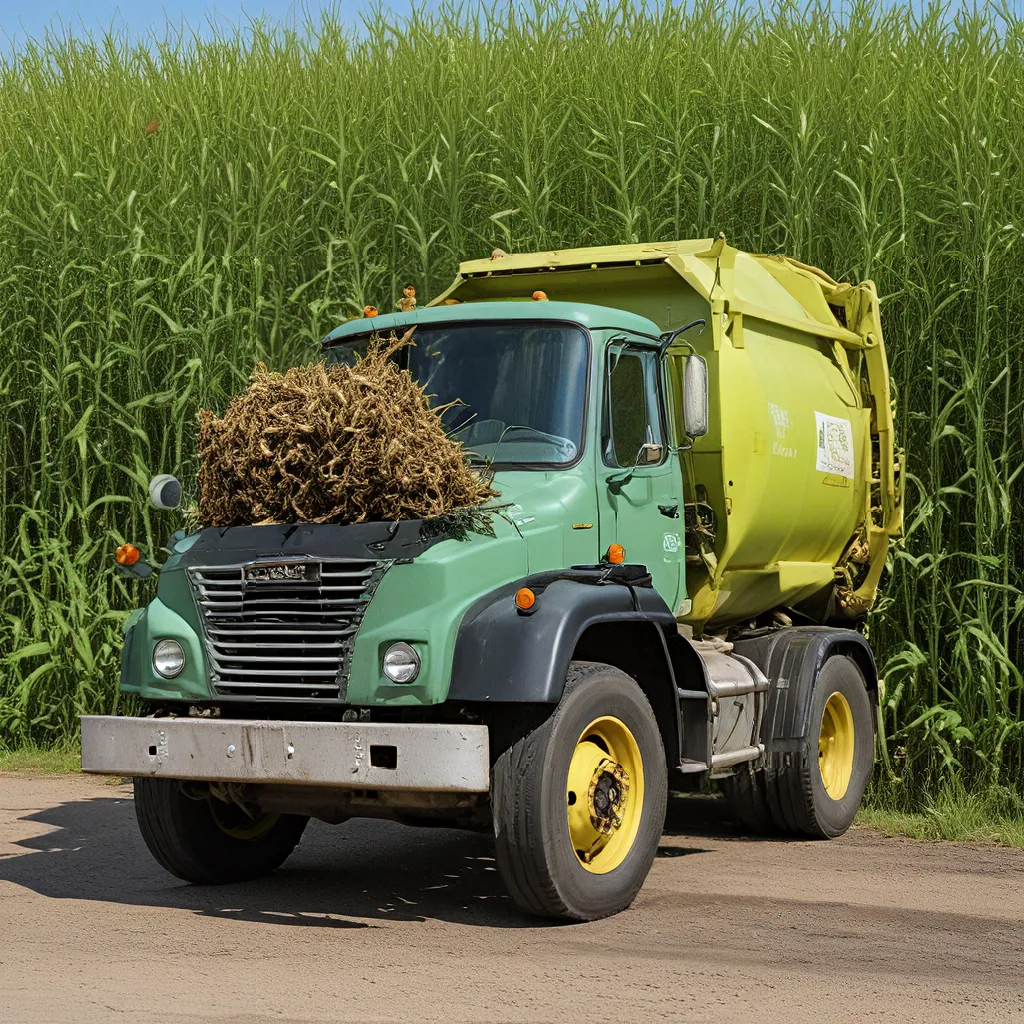
Have you ever wondered what happens to all the waste we produce? Well, my friends, I’m about to let you in on a biofuels breakthrough that’s going to change the game. Imagine taking everyday waste – from sewage sludge to forest biomass – and turning it into the fuel that powers our cars, trucks, and even planes. It sounds like something out of a sci-fi movie, but I’m here to tell you that it’s very much a reality.
Powering the Future, One Waste Molecule at a Time
As someone who’s always been fascinated by the intersection of technology and sustainability, I’ve been closely following the latest developments in the world of biofuels. And let me tell you, the progress being made is nothing short of mind-blowing.
ExxonMobil has been at the forefront of this movement, working tirelessly to develop lower-emission fuel alternatives that can help drive down transportation emissions. And let me tell you, they’re not just talking the talk – they’re walking the walk.
Just imagine a world where the cowboys of the future are cruising around in electric vehicles, or where the high-flying gearheads of Formula 1 are fueling their engines with sustainable aviation fuel. It’s a future that’s closer than you might think, thanks to the innovative work being done in the realm of biofuels.
From Waste to Fuel: The Enerkem Advantage
But ExxonMobil isn’t the only player in this game. Enerkem, a world leader in the production of biofuels from waste materials, has been making some major breakthroughs of its own.
Just recently, Enerkem announced that it had successfully produced sustainable aviation fuel (SAF) from local forest biomass using its proprietary thermochemical process. Can you believe it? They’ve managed to take the very stuff that’s clogging up our landfills and turn it into the fuel that will power our planes.
And the best part? This isn’t just some far-fetched idea – Enerkem already has the infrastructure in place to move to the commercialization stage. They’ve got a commercial-scale biofuel plant in Edmonton, Alberta, and another one currently under construction in Varennes, Quebec. Talk about putting their money where their mouth is!
Waste Not, Want Not: The Global Potential of Biofuels
But Enerkem isn’t the only one getting in on the action. Around the world, scientists and engineers are exploring innovative ways to turn our waste into sustainable transportation fuel.
In Europe, a project called To-Syn-Fuel has been making headlines, with a car fueled by human waste touring the countryside and covering over 2,000 kilometers. Can you believe it? We’re talking about turning sewage sludge into biocrude oil. It’s like something out of a sci-fi novel, but it’s happening right now.
And it’s not just human waste that’s getting the biofuel treatment. Researchers in Canada have been exploring the potential of fast-growing willow to treat wastewater and provide a sustainable source of biofuels. Talk about a win-win solution!
The Challenges (and Opportunities) of Scaling Up
Of course, as with any groundbreaking technology, there are challenges to overcome before we can see these biofuels being used on a large scale. From logistical hurdles to regulatory roadblocks, the path to commercialization is anything but smooth.
But you know what they say – where there’s a will, there’s a way. And the experts working on these projects are clearly driven by a deep passion for sustainability and a desire to make a real difference.
As Plugnsave Energy Products can attest, the future of transportation is changing, and biofuels are poised to play a crucial role. By turning our waste into a valuable resource, we’re not only reducing our carbon footprint but also creating new economic opportunities and fostering a more circular economy.
So, the next time you see a plane taking off or a truck hauling goods down the highway, remember that the fuel powering those machines might just be the product of our own waste. It’s a biofuels breakthrough that’s sure to leave you feeling a little more hopeful about the future.